BCN enough excuses
Marc Villanueva Mir & Alán Carrasco

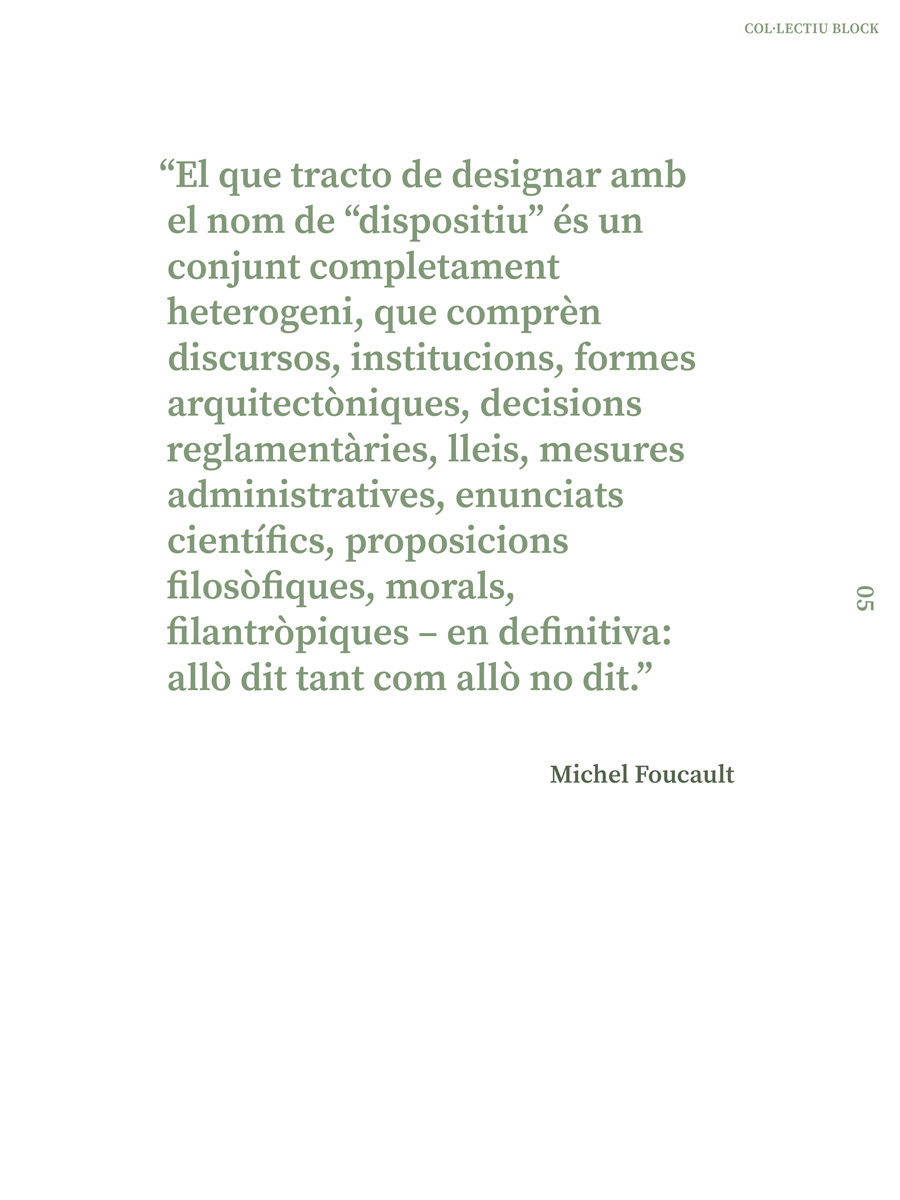
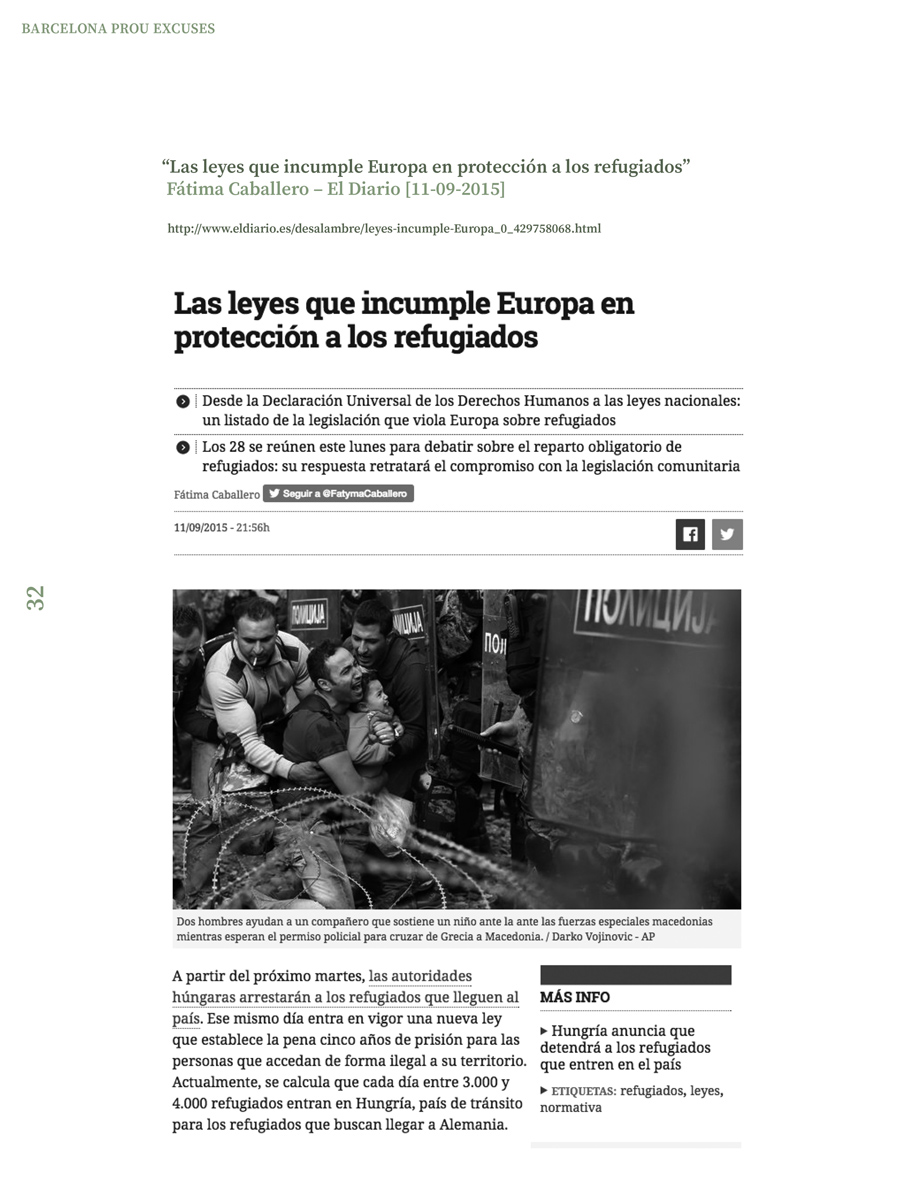

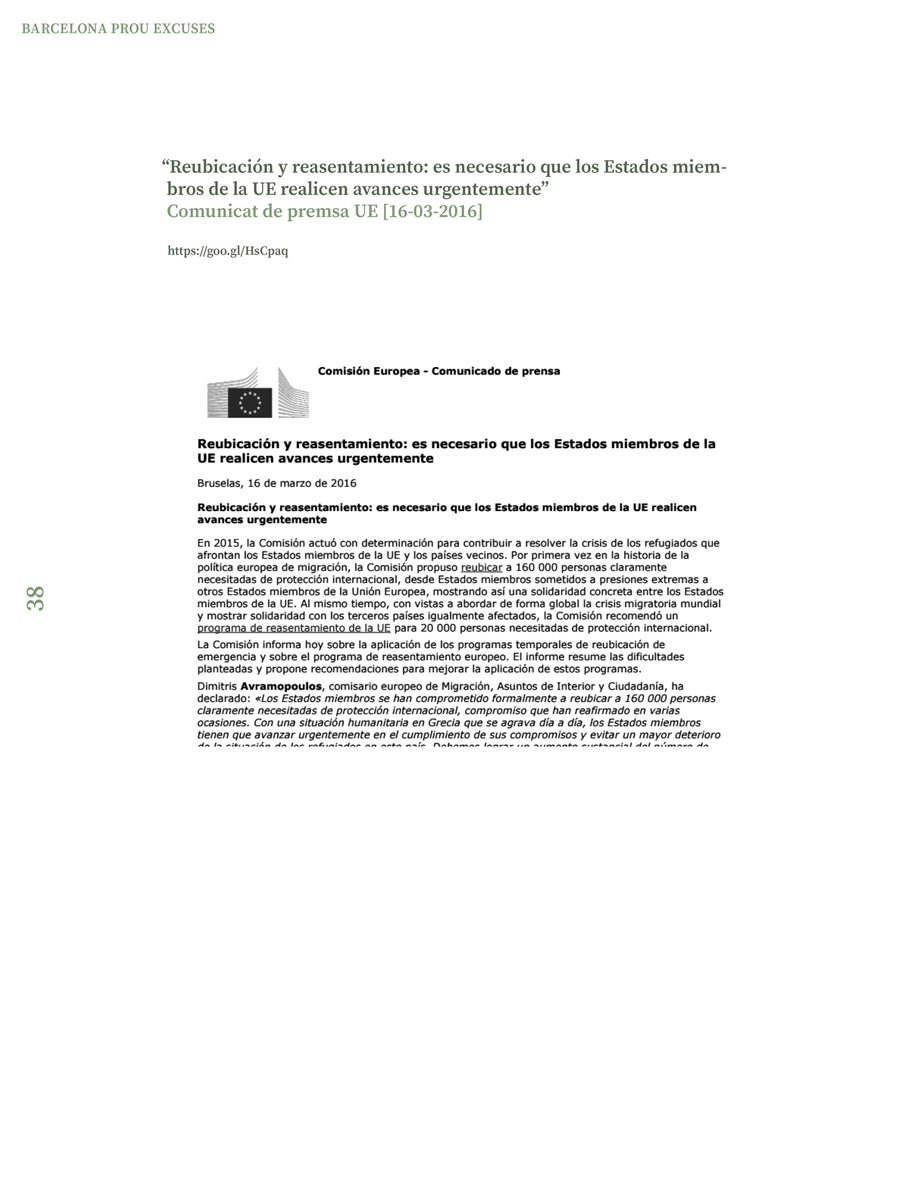
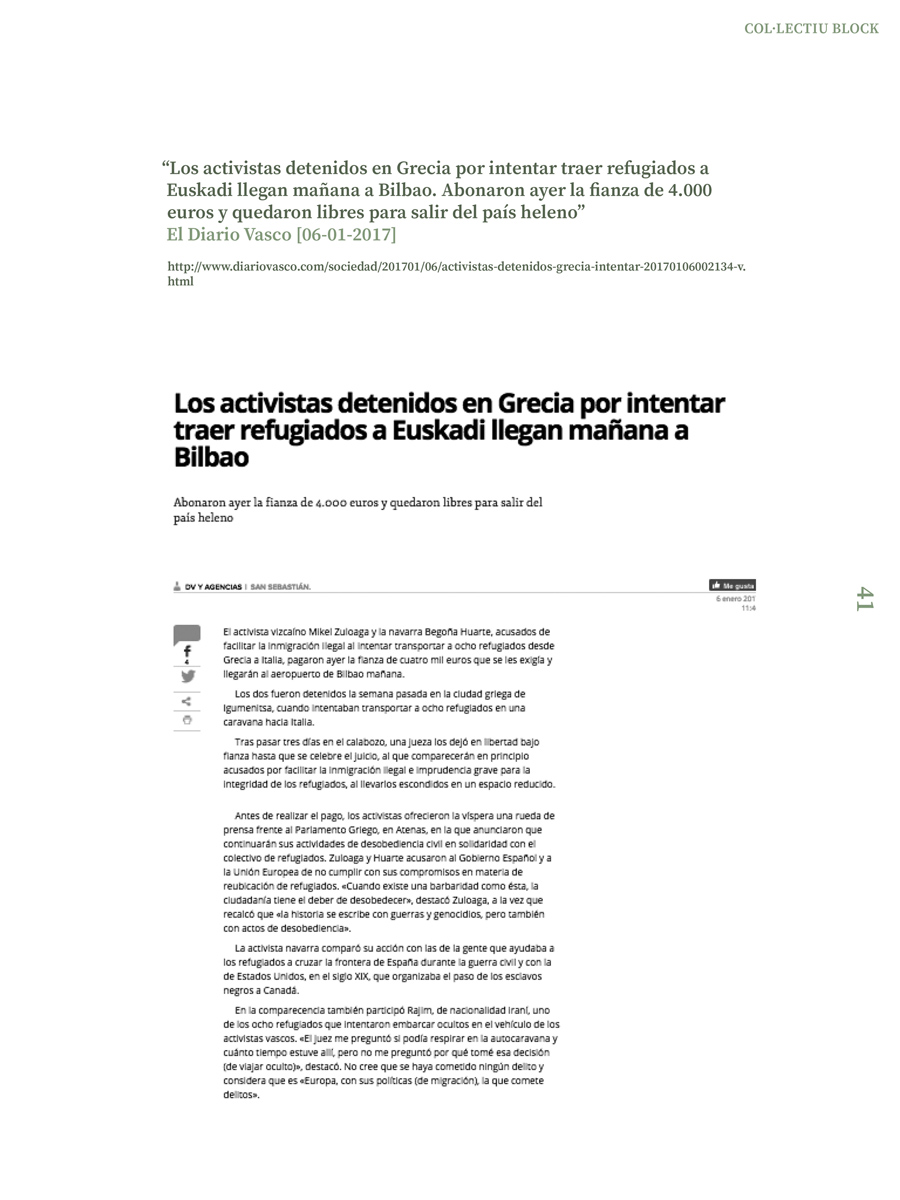
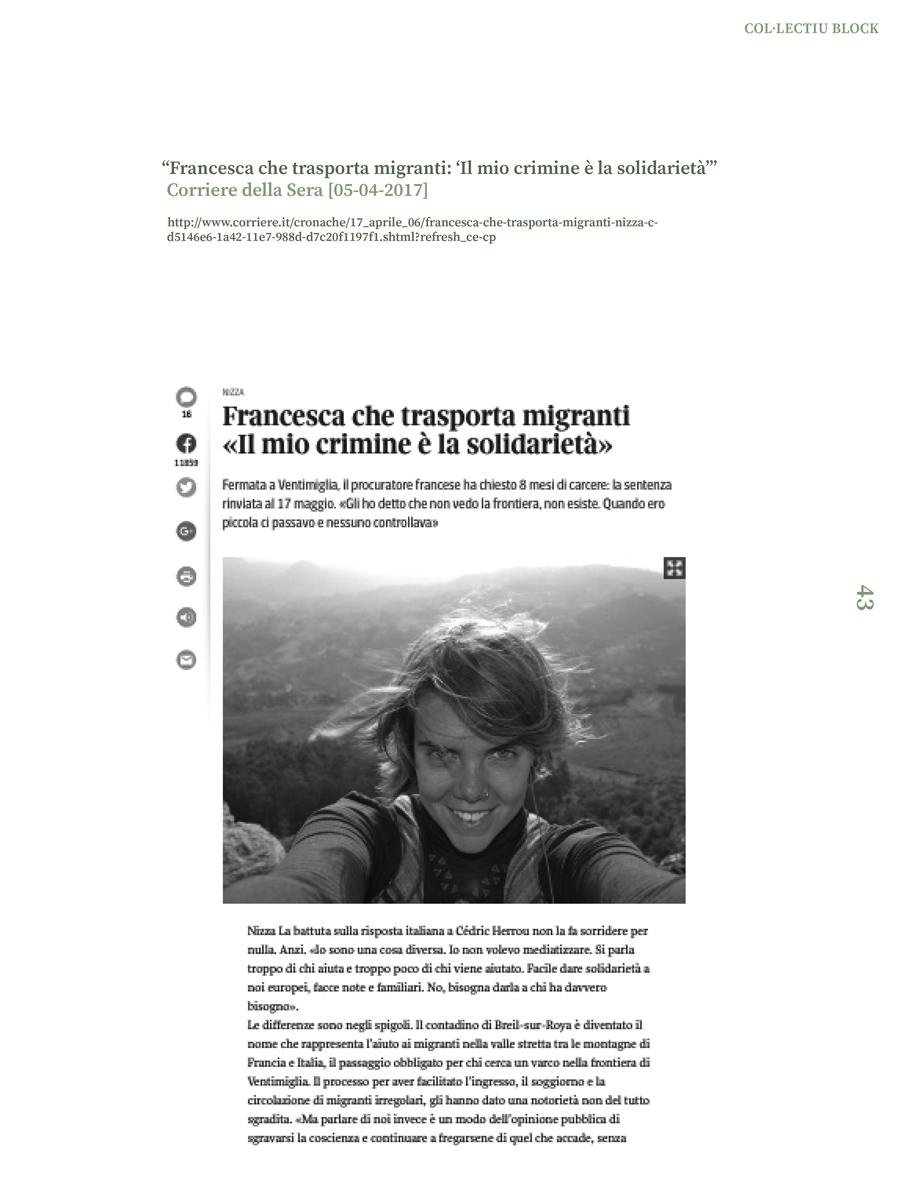
The sheltering of Syrian refugees is, from Summer 2015, one of the most urgent challenges for European governments. It is no longer possible to think of the “idea of Europe” evoked by Steiner without facing the rough reality of this political neglect. From the reluctant attitudes of most European governments, the response of Spain is one of the most blatant. From the 19,500 refugees that Spain should have already taken in, according to the Council Decisions (EU) 2015/1523 and (EU) 2015/1601, on the 31st of March 2017 less than a 5% of this number has been fulfilled. Opposing this state policy, the Catalan society organized itself and demonstrated strongly in support of the reception of refugees, with the explicit commitment of the Catalan institutions. The numbers are still minimal though: in 2016, only 124 from the 4,500 expected people arrived to Catalonia. The Catalan authorities excuse their political passiveness by referring to the article 149.1.2 of the Spanish Constitution, which specifies that the right of asylum is an exclusive competence of the state. At this point, discussions often reach a dead end.
With BCN enough excuses, we proposed an action of disobedience: chartering a bus in Greece for a group of refugees stuck there, and bringing them directly to Barcelona, skipping the red tape and relying on the good will of people and institutions to accomodate and integrate them. This proposal was intentionally naive, and practically impossible to carry out. Our aim was precisely to question and analyze that impossibility. The bus proposal should act as a trigger to interrogate the underlying problems in such an action (from a legal as well as an ethical point of view) and connect them to the struggles of individuals and groups working on that field. It should however be also a provocation to open up a discussion about concepts of legal competence and self-determination, disobedience and responsibility, as well as a question to the real commitment of Catalan authorities to take in refugees. That should be the starting point for a research project through which we would interview all the agents needed for the implementation of this action (from bus companies to local authorities, from the press to activists, from refugees to border police). The recording of all these interviews, together with related documentation, would be uploaded to a website in order to constitute a digital archive, probably rather a cartography of an impossibility than a success story.
BCN enough excuses lacked of institutional support and therefore exists only as a project.
Concept Marc Villanueva Mir & Alán Carrasco